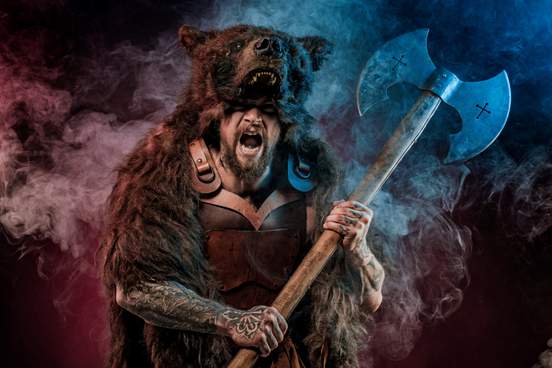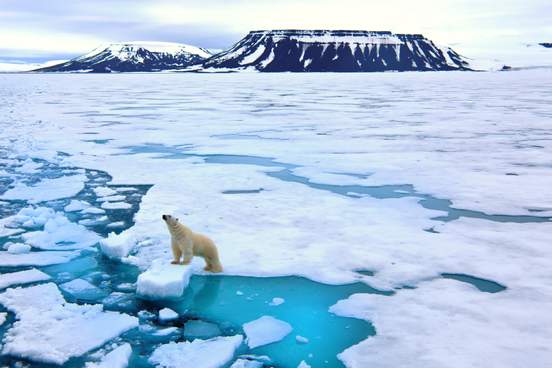
Galaxy
Definition: any of the very large groups of stars and associated matter that are found throughout the universe
Many words over the centuries have traveled strange routes into English given their origins. Galaxy, for example, took the milky way. Galaxy (which in Middle English was spelled galaxias or galaxie) was borrowed from Late Latin galaxias, which in turn was borrowed from Greek galaxías. (That word likely had an earlier form conjoined with kýklos, “wheel”). The -ias of galaxías is a noun suffix used especially of natural phenomena. The galax part of the word is from Greek galakt-, which is the stem of gála, meaning “milk.”
With every passing day, the James Webb Space Telescope (JWST) peers further into the depths of space—and further back in time. Its latest discovery is a galaxy designated JADES-GS-z14-10. Dating to only 300 million years after the Big Bang, it is the most ancient galaxy yet observed.
— Tom Hawking, Popular Science, 31 May 2024

Marmalade
Definition: a clear sweetened jelly in which pieces of fruit and fruit rind are suspended
Fig marmalade, yuzu marmalade, orange marmalade… the cupboards of the world are well and truly laden with marmalades of every conceivable variety (non-fruit marmalades exist, too, such as those featuring onions and even bacon). But origins of the word marmalade are entwined with a particular fruit, the quince. Quinces resemble hard-fleshed yellow apples, and just like their apple cousins, they belong to the rose family. Marmalade comes from the Middle English word marmelat, meaning “quince conserve,” which in turn came from the Portuguese marmelada, from marmelo (“quince”).
Even though Cantonese Chinese is her first language and my mom grew up with a grounded Chinese cultural identity, I can see the legacy of her childhood in a British colony from her affinity to Ovaltine, Seville orange marmalade, knowledge of Princess Margaret stories from the 1960s to her admiration of British style afternoon tea.
— Charlene Wang de Chen, Whetstone Magazine, 18 Nov. 2020

Berserk
Definition: markedly out of control due to intense anger or excitement
Combine a bear with a shirt and what do you get? A cuddly, honey-loving, ursine pal, perhaps. Combine the words bear and shirt however, at least in Old Norse, and you get something quite different. Our English word berserk comes from the Old Norse noun berserkr, which is likely a combination of ber- (“bear”) and serkr (“shirt”). According to Norse legend, berserkers were not ones to say “Oh bother” when faced with sticky situations—they were warriors who wore bearskin coverings and worked themselves into such frenzies during combat that they became immune to the effects of steel and fire. Berserk was borrowed into English (first as a noun referring to such a warrior) in the 19th century, when interest in Scandinavian myth and history was high. It was considered a slang term at first, but it has since gained broader use.
Barbie received eight nominations, including for best picture, but where were individual nods for director Greta Gerwig or star Margot Robbie, the A-list architects who constructed a billion-dollar blockbuster out of an $18 plastic doll that was born in 1959? Barbie fans went berserk online, denouncing the Academy for what they saw as a sexist snub.
— Chris Gardner, The Hollywood Reporter, 29 Feb. 2024

Serac
Definition: a pinnacle, sharp ridge, or block of ice among the crevasses of a glacier
Unless you’re a connoisseur of polar or mountaineering literature (or both!) and recognize serac from the works of their favorite authors and explorers, you may be unfamiliar with it, but if you’re a turophile (who isn’t?), you will no doubt delight in its origins: serac comes directly from the French sérac, a hard white cheese with a certain, ice-like je ne sais quoi.
On the mountain, Danielson was startled when his phone rang—he hadn't been able to dial out but had just enough service to receive calls. By then, he had noticed the hard, icy surface underfoot and concluded he must be skirting the edge of the Whitney Glacier, a snaking body of seracs and crevasses considered nearly un-navigable.
— Gregory Thomas, The San Francisco Chronicle, 12 May 2023

Weird
Definition: of strange or extraordinary character
You may know weird as a generalized term describing something unusual, but this word also has older meanings that are more specific. Weird derives from the Old English noun wyrd, essentially meaning “fate.” By the 8th century, the plural wyrde had begun to appear in texts as a gloss for Parcae, the Latin name for the Fates—three goddesses who spun, measured, and cut the thread of life. In the 15th and 16th centuries, Scots authors employed werd or weird in the phrase “weird sisters” to refer to the Fates. William Shakespeare adopted this usage in Macbeth, in which the “weird sisters” are depicted as three witches. Subsequent adjectival use of weird grew out of a reinterpretation of the weird used by Shakespeare.
I’ll never forget a woman at a reading in a public library in April of 2016 in Claremont, California—one of those weird, beautifully ugly sixties California buildings; it was a rancher of a library, maybe with some faux stone on the front, maybe white brick—I suspect she was in her late sixties or early seventies. And as she asked me to inscribe Catalog, she was crying, just a little, not very able to talk. And she said, quietly, wiping her face, “I didn’t know you could write about joy.”
— Ross Gay, Inciting Joy: Essays, 2022

Explode
Definition: to burst violently as a result of pressure from within
The original meaning of explode comes from the Latin verb plaudere meaning “to make a noise by loud clapping.” This is the same root from which we get the word applaud. Ancient Romans showed their approval of a theatre performance by applauding (Latin applaudere), and conversely, they showed their disapproval of a performance by clapping loudly to drive the performers from the stage. The word for this was explaudere or explodere.
A woman who bought some salad dressing later realized it was recalled because bacteria could cause the contents to bubble and greatly expand. While she was preparing a meal at her home in Casper, Wyo., the bottle exploded and spewed dressing everywhere.
— Mike Pingree, The Boston Herald, 24 Dec. 2015

Vulgar
Definition: offensive in language
Vulgar comes from the Latin vulgus, meaning “mob,” or “common people.” Many of the other meanings of this word reflect this root; vulgar may mean “understood in or having the ordinary sense,” “of or relating to the common people,” and “vernacular.” Other times vulgar appears to have drifted semantically far from its origins; the meaning of vulgar establishment is not, as one might expect, “dive bar,” but “the average interval of time that occurs between the moon’s upper transit and the first high water following the transit and that is taken at the time of the full moon or new moon.”
The middle-aged men and women shrank when they passed so the youngsters wouldn’t knock their drinks as they stormed the small dance floors. The old-timers shook their heads at the vulgar lyrics of the new funk. What kind of twisted mind committed such filth to vinyl?
— Colson Whitehead, Crook Manifesto: A Novel, 2023

Arctic
Definition: often capitalized : of, relating to, or suitable for use at the north pole or the region near it
Like berserk, Arctic has an ursine etymology. The word traces back through Middle English and Latin to the Greek word arktos, a noun meaning “bear” and “north” as well as referring to Ursa Major, a constellation in the northern sky that the Greeks identified with the nymph Callisto after she’d been transformed by Zeus into a bear and placed in the heavens.
The polar expeditions launched by Europeans and North Americans beginning in 1818 are usually historicized within the context of the broader exploration and colonization projects of the long nineteenth century. And yet the initial Arctic ventures of the period were inaugurated and enabled, in some ways, by short-term global climate change. As reported by members of the Anglo-American Arctic whaling fleet in 1816 and 1817, a couple of uncommonly warm winters off the west coast of Greenland produced greatly reduced sea ice in Far Northern waters.
— Hester Blum, The News at the Ends of the Earth: The Print Culture of Polar Exploration, 2019





